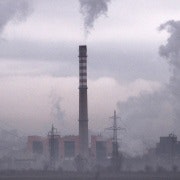Doha climate summit: Day 1
The Doha Climate Summit got underway overnight Australian time, with delegates arriving at Qatar's colossal convention centre to attempt to streamline talks toward a new agreement covering all major emitters by 2015.
So far the meeting lacks the air of tension that has permeated the talks of the past. Certainly, delegates carry concerns and some trepidation around certain issues and many are already tired after days of preparatory meetings. However, the lack of high level political drama around the talks appears to be allowing delegates to focus on the detail of what they need to achieve over the next couple of weeks.
It is also clear that Australia's preparedness to take on a new Kyoto target has been met with genuine relief (and in some cases surprise) from a range of delegates from progressive countries. Questions are now focused on what Australia's proposed preliminary Kyoto target means (see: figure below).
Australian officials will certainly be in the hot seat tomorrow as they explain the assumptions around the commitment, how its ambition can be increased and what it means for Australia's final target decision on 2020 targets in 2014. This is when, after the report of the independent Climate Change Authority, that the Parliament must consider the emission limit to be placed on our largest polluting companies.
The government's inclusion of full bipartisan supported target range of up to 25 per cent emission reductions by 2020 in an international treaty gives the Climate Change Authority a clear mandate to consider stronger targets than proposed today.

Figure 1: Australia has proposed that its provisional Kyoto Protocol target will be 99.5 per cent on 1990 levels. This compares to a target of 108 per cent for the first target period from 2008 to 2012. Australia has also included its full bipartisan supported target range of up to 25 per cent reductions on 2000 levels by 2020 in the Protocol submission.
Australia's final 2020 target will be determined in 2014 after a review of the independent Climate Change Authority, at a time of international scrutiny of targets by other countries and after the Federal Election. More information on possible Australian Kyoto targets is available here.
Erwin Jackson is the Deputy CEO of The Climate Institute.













